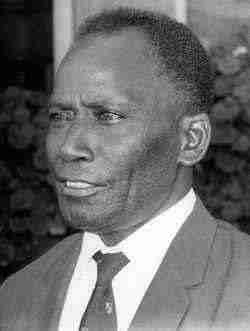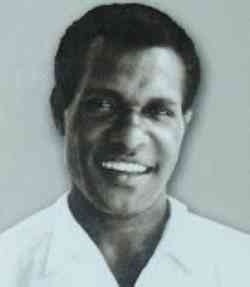Related Research Articles

The politics of Papua New Guinea takes place in a framework of a parliamentary representative democratic multi-party system, whereby the prime minister is the head of government. Papua New Guinea is an independent Commonwealth realm, with the monarch serving as head of state and a governor-general, nominated by the National Parliament, serving as their representative. Executive power is exercised by the government. Legislative power is vested in both the government and parliament.

Sir Julius Chan is a Papua New Guinean politician who served as Prime Minister of Papua New Guinea from 1980 to 1982 and from 1994 to 1997. He is Member of Parliament for New Ireland Province, having won the seat in the 2007 national election. He is also the current Governor of New Ireland Province, since 2007. On 26 May 2019, Prime Minister Peter O'Neill announced he would soon resign and that he wished for Sir Julius to succeed him. An outgoing Prime Minister does not, however, have the power to appoint his successor, and the following day O'Neill delayed his own formal resignation. He was also a leading figure in his country during the years-long Bougainville conflict.
The Melanesian Alliance Party is a political party in Papua New Guinea.

Bernard Mullu Narokobi OBE was a Papua New Guinean politician, jurist, and philosopher. He was serving as the Papua New Guinean High Commissioner to New Zealand prior to his death. Between 1987 and 1997 he represented his Wewak Open Electorate as a Member in the Papua New Guinea's National Parliament. During his time as a Member of Parliament (MP), he served as the Minister for Justice (1988–1992) in the government led by the then Prime Minister Rabbie Namaliu; Agriculture Minister (1992–1994) under the leadership of Prime Minister Sir Julius Chan led government; and Leader of the Opposition from July 1997 to 1999, and Speaker of the National Parliament of Papua New Guinea, until he lost his seat to the then Wewak MP Kimson Kare during the 2002 elections. He was displaced as a minister in the Chan government for failing to vote in favour of constitutional reforms in the provincial system of government.
Arthur Somare is a former Member of the National Parliament of Papua New Guinea (PNG). He represented the electorate of Angoram Open in East Sepik province for the National Alliance Party from 1997 until he lost in the 2012 general elections.

Sir Michael Thomas Somare was a Papua New Guinean politician. Widely called the "father of the nation", he was the first Prime Minister after independence. At the time of his death, Somare was also the longest-serving prime minister, having been in office for 17 years over three separate terms: from 1975 to 1980; from 1982 to 1985; and from 2002 to 2011. His political career spanned from 1968 until his retirement in 2017. Besides serving as PM, he was minister of foreign affairs, leader of the opposition and governor of East Sepik Province.

The National Alliance Party has operated as a political party in Papua New Guinea since 1995. As of May 2019, the party had 11 members in the 111-seat National Parliament of Papua New Guinea, and was part of the Alliance Accord for Change, opposition to the O'Neill led government for Papua New Guinea's 10th Parliament.

Papua New Guinea, a sovereign state in Oceania, is the most linguistically diverse country in the world. According to Ethnologue, there are 840 living languages spoken in the country. In 2006, Papua New Guinea Prime Minister Sir Michael Somare stated that "Papua New Guinea has 832 living languages ."

The United Resources Party is a political party in Papua New Guinea.

Sir Puka Temu,, is a Papua New Guinean politician. He has been a member of the National Parliament of Papua New Guinea since 2002, representing the electorate of Abau Open. A former Deputy Prime Minister under Michael Somare, he is part of Prime Minister James Marape's government as a member of the Our Development Party.

John Momis is a Bougainvillean politician who served as the President of the Autonomous Region of Bougainville in Papua New Guinea between 2010 and 2020.

Samuel Tei Abal is a Papua New Guinean politician. Abal, who previously served as Foreign Minister from August 2007 to December 2010, became the Deputy Prime Minister of the country in a cabinet reshuffle by Michael Somare on 7 December 2010. He further became acting Prime Minister of Papua New Guinea on 13 December 2010, when Prime Minister Somare stepped down from office to face a tribunal regarding allegations of financial mismanagement. His tenure as acting Prime Minister ended on 2 August 2011, when Peter O'Neill won a parliamentary vote to be appointed as Prime Minister. Since October 2021, he is the Ambassador Extraordinary and Plenipotentiary of Papua New Guinea to Japan.
Belden Namah is a Papua New Guinean politician. Namah is a member of the National Parliament for the Papua New Guinea Party, and has represented Vanimo-Green River District since 2007. He served in the Cabinet from 2007 to 2010, and as Deputy Prime Minister from 2011 to 2012. In 2012, Namah became a member of the opposition. After retaining his seat in the 2022 election, he said that he would not rejoin the opposition.
2011–2012 Papua New Guinean constitutional crisis was a dispute between Sir Michael Somare and Peter O'Neill. Both claimed to be Prime Minister of Papua New Guinea.
Sir John Pundari is a Papua New Guinean politician. He has been Speaker of the National Parliament (1997–1999), Deputy Prime Minister (1999), Minister for Foreign Affairs (2001), and currently serving as the Minister of Finance and Rural Development since 20 December 2020.
Paru Aihi is a former Papua New Guinean politician. He was a member of the National Parliament of Papua New Guinea from 2007 to 2012, representing the electorate of Kairuku-Hiri Open. He was Minister for Higher Education, Science, Technology and Research under Michael Somare from March to August 2011 and Minister for Education under Peter O'Neill from August to December 2012.
Peter Namea Isoaimo is a Papua New Guinean politician. He has been a National Alliance Party member of the National Parliament of Papua New Guinea since February 2014, representing the electorate of Kairuku-Hiri Open in Central Province.
Events in the year 2021 in Papua New Guinea.

Sir Paul Lapun was a Papua New Guinean politician. Both a supporter of independence for Papua New Guinea (PNG) and of the secessionist movement on Bougainville, Lapun served in the House of Assembly of Papua and New Guinea and in the first National Parliament of Papua New Guinea between 1972 and 1975, when he was Minister for Mines and Energy. He was instrumental in obtaining royalties for the people of Bougainville for the copper mine on their island. He was the first Papua New Guinean to receive a knighthood.

Sir Ebia Olewale (1940–2009) was a politician in Papua New Guinea (PNG). He was elected as a member of the House of Assembly of Papua and New Guinea in 1968 and went on to hold several ministerial positions during the period of self-governance and after PNG's independence in 1975, including that of deputy prime minister. He was knighted in 1983 and served as chancellor of the University of Goroka from 2000 to 2006. From 2002 until his death, he was a director of the Papua New Guinea Sustainable Development Program.
References
- 1 2 "Moi Avei KCBE". Executive Profile. Bloomberg. Retrieved 4 February 2019.
- ↑ "Papua New Guinea". Asia Pacific Parliamentary Forum. Retrieved 4 February 2019.
- ↑ "PNG's Sir Moi Avei suspended over alleged misconduct". Radio New Zealand. November 1, 2006.
- ↑ "No. 56434". The London Gazette (Supplement). 31 December 2001. p. 35.